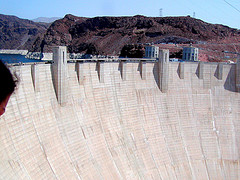
The oceans are nature’s way of removing carbon dioxide from the atmosphere – it’s estimated that one third of human-generated CO2 has been absorbed by the sea. But with the seas becoming more acidic, the rate of CO2 absorption is reduced. But what happens if they become more alkaline? Some Harvard researchers predict we could increase CO2 absorption by speeding up the natural release of basic solutions into the ocean, thus reducing the rate of release of CO2 in the atmosphere, helping corals and sea life affected by more acidic seas, and giving us cake.
There are some downsides, however, including localized pollution (the alkalines would be concentrated around the production plants, thus harming local sea life), price ($100 for every ton or CO2 removed), and energy – if the process were powered by coal, the net effect would be addition of CO2. Renewable energy, like geothermal, is one possibility around this, and in such a case could be more beneficial (CO2-wise) than replacing an entire coal plant.
See here for the abstract, it’s worth it just to read the title.
(article & image via Environmental Science & Technology Online)



